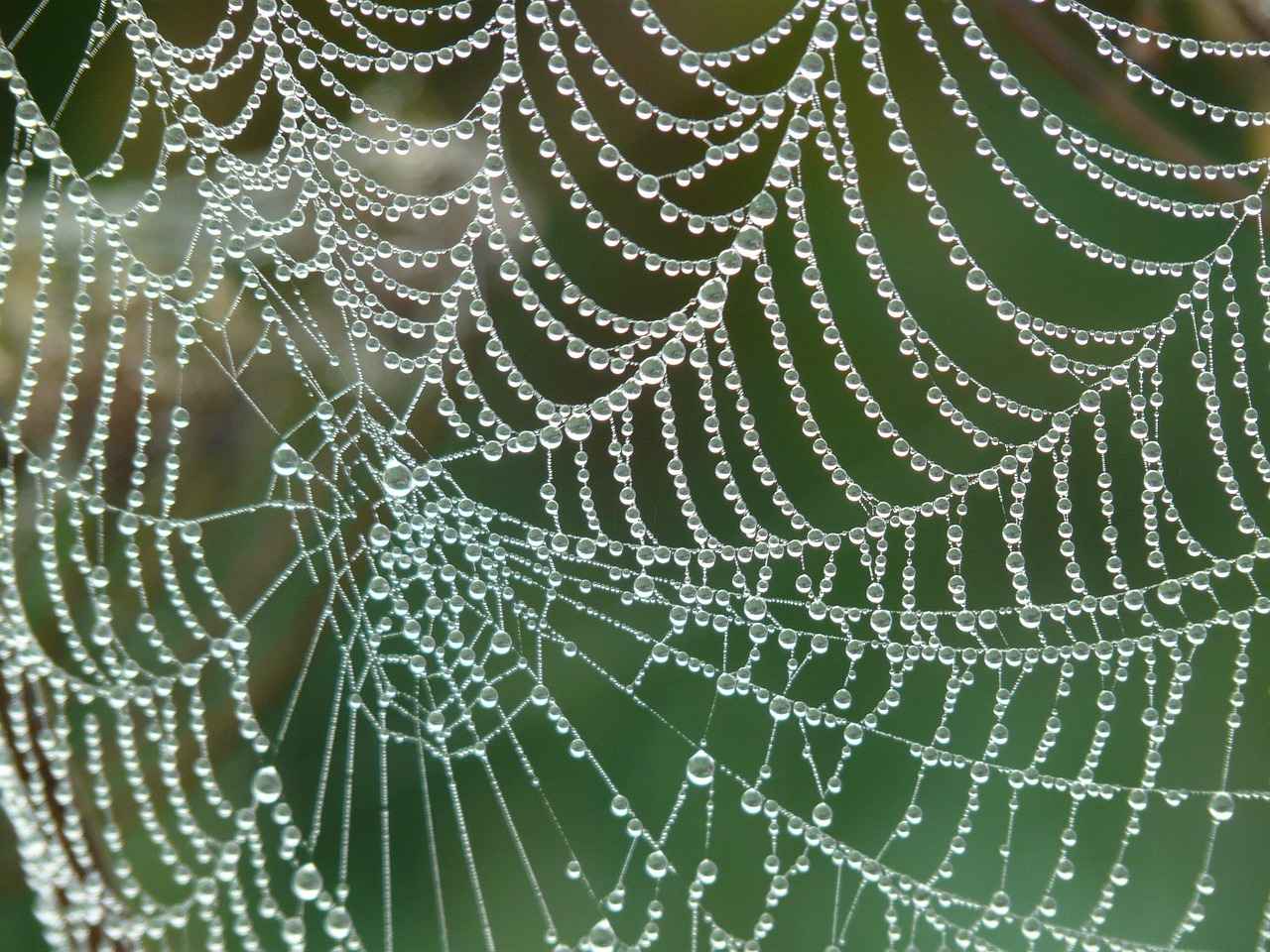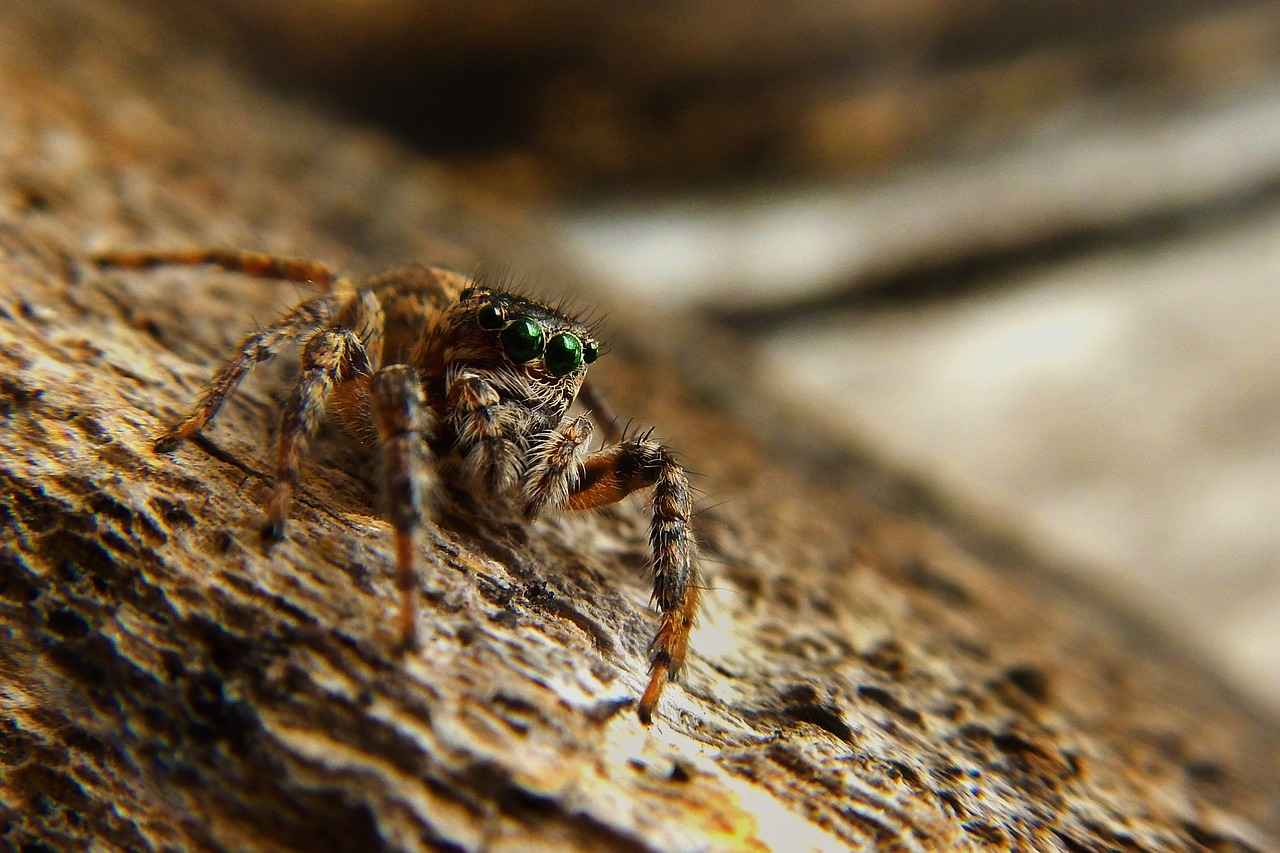This article provides practical and effective methods to eliminate spiders from your vehicle, ensuring a comfortable and pest-free driving experience. Spiders can be unwelcome passengers in your car, creating discomfort and anxiety while driving. Understanding how to effectively deal with these pests can make your driving experience much more enjoyable.
Spiders often invade vehicles in search of shelter and food. Your car can provide a warm and cozy environment, particularly if it is parked near vegetation or in a garage. Additionally, crumbs and spills can attract insects, which in turn attract spiders. Recognizing these factors can help you take preventive measures.
To effectively address a spider problem, you must first identify the signs of an infestation. Look for:
- Webs: Often found in corners or under seats.
- Egg sacs: Small, round, and typically white or yellow.
- Live spiders: Spotting them is the most obvious sign.
Familiarizing yourself with common spider species can assist in identification and treatment:
- House Spiders: Typically harmless but can be a nuisance.
- Wolf Spiders: Larger and more aggressive, often seen hunting for prey.
There are numerous methods to eliminate spiders from your vehicle:
Utilizing natural solutions is an eco-friendly approach to spider control. Some effective methods include:
- Essential Oils: Oils like peppermint and tea tree can repel spiders when diluted with water and sprayed in your car.
- Vinegar: A mixture of vinegar and water can also deter spiders. Spray it in corners and under seats.
If natural remedies do not suffice, consider using commercial spider repellents or traps. These products are specifically designed to target spiders effectively. Look for:
- Spider Sprays: Formulated to kill spiders on contact.
- Sticky Traps: Effective for capturing spiders and monitoring infestations.
Taking proactive steps can significantly reduce the chances of spider infestations:
Maintaining a clean and organized vehicle is essential. Here are some tips:
- Vacuum Regularly: Eliminate crumbs and debris that attract insects.
- Wipe Down Surfaces: Regularly clean your car’s interior to remove spider webs and eggs.
Incorporating deterrents can be an effective strategy. Consider:
- Natural Repellents: Using essential oil sprays regularly can keep spiders at bay.
- Spider Traps: Place traps in areas where spiders are likely to enter your vehicle.
By implementing these methods, you can create a more comfortable and pest-free driving environment. Regular maintenance and proactive measures will significantly reduce the likelihood of spiders making your car their home.

Why Are There Spiders in My Car?
Spiders are often unwelcome guests in our vehicles, and understanding why they invade can help us take effective steps to prevent their presence. Many drivers may wonder, “Why are there spiders in my car?” The answer lies in the basic needs of these creatures: shelter and food. Your car can provide both, making it an attractive environment for spiders.
Firstly, consider the structure of your vehicle. Cars offer numerous hiding spots, such as the undercarriage, wheel wells, and even the interior, particularly in the nooks and crannies of the seats and dashboard. This makes it easy for spiders to find a cozy spot away from predators and harsh weather conditions. Furthermore, if your car is parked in areas with dense vegetation or near a garden, it becomes even more appealing. Spiders often thrive in environments where they can find food, and if your car is parked near such habitats, it may attract insects that spiders prey upon.
Additionally, the warmth generated by your vehicle can be a significant factor. During colder months, spiders may seek the warmth of your car as a refuge from the elements. This is especially true for species like house spiders, which are commonly found in residential areas. They are drawn to the warmth that a parked car can provide, making it a temporary shelter.
Another reason for spider infestations in vehicles is the accumulation of organic material. If you often eat in your car or transport plants and flowers, you may inadvertently create a food source for spiders and their prey. Crumbs and spills can attract insects, which in turn attract spiders. Regular cleaning and maintenance can help mitigate this issue.
To further understand spider behavior, it’s important to note that different species have different preferences. For example, wolf spiders are known to be more aggressive and are often found in search of prey. If your car is parked in areas where these spiders are prevalent, the chances of finding them inside your vehicle increase.
In summary, spiders are drawn to cars primarily due to shelter, food, and warmth. By recognizing these factors, you can take proactive measures to prevent spider infestations in your vehicle. Regular cleaning, avoiding food inside the car, and parking in less spider-friendly areas can significantly reduce the likelihood of encountering these eight-legged creatures.
Understanding the reasons behind spider infestations is crucial for effective prevention. By maintaining a clean environment and being mindful of where you park, you can ensure a more comfortable and pest-free driving experience.

How to Identify Spider Infestations
Identifying a spider infestation in your vehicle is essential for maintaining a comfortable and safe driving environment. Spiders can be more than just an inconvenience; they can also cause distress to passengers. Here we will explore the signs of spider infestations, common species to look for, and practical tips for detection.
Recognizing the signs of a spider infestation is crucial for timely intervention. If you suspect that spiders have made your car their home, there are several indicators to look for. Here are some key signs to help you assess the severity of the problem:
- Webs: Look for webs in corners of the windows, under the seats, or in the trunk. Spiders often weave webs to catch prey, and these can be a clear sign of their presence.
- Egg Sacs: Spider egg sacs can often be found in hidden areas. These sacs are typically small and may be white or yellowish. Finding an egg sac is a strong indication that an infestation is imminent.
- Visible Spiders: The most direct sign of an infestation is spotting the spiders themselves. If you see them crawling around, it’s time to take action.
- Droppings: Spider droppings resemble small black dots and can be found near webs or in hidden areas of your car.
Understanding these signs can help you gauge the level of infestation and determine the necessary steps for eradication. It’s important to act quickly, as an unchecked infestation can lead to a more significant problem.
Familiarizing yourself with the common spider species that may invade your vehicle can help you identify and address the issue more effectively. Here are a few species you might encounter:
- House Spiders: Typically harmless, house spiders are attracted to warmth and shelter, making your car an ideal spot for them.
- Wolf Spiders: Larger and more aggressive, wolf spiders may enter vehicles in search of prey. Their presence can be alarming, and they are more noticeable than other species.
Identifying physical evidence of spiders can confirm an infestation and guide your cleaning efforts. In addition to webs and egg sacs, look for:
- Molted Skins: Spiders shed their skins as they grow. Finding these remnants can indicate that spiders are living in your vehicle.
- Signs of Prey: If you notice an increase in insects like flies or moths, this could attract spiders, indicating a potential infestation.
By being vigilant and recognizing these signs, you can take the necessary steps to eliminate spiders from your car before the problem escalates. Regular inspections and maintenance can greatly reduce the chances of a spider infestation.
In summary, keeping an eye out for webs, egg sacs, and the spiders themselves, as well as other physical evidence, is essential for identifying spider infestations in your vehicle. Taking prompt action can ensure a pest-free driving experience.
Common Spider Species Found in Cars
When it comes to keeping your vehicle free from unwanted pests, understanding the common spider species that may invade your car is imperative. By familiarizing yourself with these species, you can more effectively identify and address any issues that arise.
Spiders often seek refuge in cars for various reasons, including warmth and shelter. Here are some of the most frequently encountered spider species:
- House Spiders: These spiders are typically small and harmless. They thrive in warm environments and are often found in the nooks and crannies of your vehicle. While they may not pose a direct threat, their presence can be unsettling.
- Wolf Spiders: Larger and more aggressive, wolf spiders can be alarming when spotted in your car. They are excellent hunters and may enter your vehicle in pursuit of prey. Their robust nature and quick movements often cause concern for drivers.
- Jumping Spiders: Known for their distinctive jumping ability, these spiders are small but can be quite noticeable. They are generally harmless and are often found in areas where they can easily catch their prey.
- Tarantulas: While less common, tarantulas can occasionally find their way into vehicles, especially in rural areas. Their size and appearance can be intimidating, but they are usually not aggressive unless provoked.
Identifying the species of spider in your car can significantly influence your response strategy. Here are some tips:
- Look for webs: Different species create different types of webs. House spiders typically make messy webs, while wolf spiders do not build webs at all.
- Check for egg sacs: If you find egg sacs, it’s a clear indication that spiders are nesting in your vehicle.
- Observe their behavior: Jumping spiders are known for their agile movements, while wolf spiders tend to scurry quickly when disturbed.
Understanding which spider species are present in your car can help you determine the best course of action for removal. For instance, while house spiders may be harmless, wolf spiders can cause alarm due to their size and speed. Recognizing these differences allows you to take appropriate measures without unnecessary panic.
Once you’ve identified the spider species in your car, you can take steps to address the situation:
- Natural Removal Methods: Consider using essential oils like peppermint or vinegar, which are known to repel spiders.
- Commercial Products: If natural methods are ineffective, spider traps and repellents can be effective solutions.
- Regular Maintenance: Keeping your car clean and clutter-free can significantly reduce the likelihood of spider infestations.
By staying informed about the common spider species that may invade your vehicle, you can take proactive measures to maintain a comfortable and pest-free driving experience. Regular inspections and cleaning can go a long way in preventing these eight-legged intruders from making your car their home.
House Spiders
are common intruders in many homes, and they often find their way into vehicles as well. These spiders are typically attracted to cars because of the warmth and shelter they provide, especially during colder months. While most house spiders are harmless to humans, their presence can be a nuisance if they go unchecked.
Understanding why seek refuge in your vehicle is essential for prevention. They are drawn to:
- Warmth: Cars can retain heat, making them a cozy spot for spiders.
- Shelter: The nooks and crannies of a car provide excellent hiding spots.
- Food Sources: Spiders may enter your vehicle in search of other pests, such as insects.
Recognizing the signs of house spider infestations is critical. Here are some indicators:
- Webs: Look for fine webs in corners or under seats.
- Egg Sacs: These are often found in hidden areas and can indicate a breeding population.
- Visible Spiders: Spotting a spider, especially during the day, can confirm their presence.
There are several effective methods to eliminate house spiders from your vehicle:
For those who prefer eco-friendly solutions, consider these natural remedies:
- Essential Oils: Oils like peppermint or tea tree can repel spiders. Mix a few drops with water in a spray bottle and apply it in your car.
- Vinegar: A mixture of vinegar and water can be sprayed in areas where spiders are likely to hide.
If natural methods do not suffice, there are many commercial products available:
- Spider Traps: These can capture spiders without the use of chemicals.
- Repellents: Look for products specifically designed to deter spiders in vehicles.
To keep your car spider-free, implementing preventive measures is crucial:
Maintaining a clean vehicle is one of the best defenses against spider infestations. Here are some tips:
- Vacuum Regularly: Remove debris and potential hiding spots.
- Wipe Surfaces: Clean surfaces to eliminate any spider webs or eggs.
Incorporating spider deterrents can also help:
- Natural Repellents: Place cotton balls soaked in essential oils around the car.
- Spider Traps: Strategically place traps in corners and under seats to catch any intruders.
By understanding the behavior of house spiders and implementing these effective methods, you can ensure that your vehicle remains a comfortable and pest-free environment.
Wolf Spiders
When it comes to dealing with spiders in your vehicle, understanding the specific types of spiders you may encounter is crucial. One of the more concerning species is the wolf spider, known for its larger size and aggressive behavior.
are distinguishable by their robust bodies and long legs. Unlike many other spider species, they do not spin webs to catch their prey. Instead, they actively hunt down insects, making them formidable predators. Their size can range from 1 to 4 inches in length, which can be alarming for those who encounter them unexpectedly.
These spiders are often drawn to vehicles for several reasons. The warmth of the engine compartment can provide a cozy shelter, especially during cooler months. Additionally, cars parked near grassy areas or gardens may attract wolf spiders searching for food. Their presence in your vehicle is not just a nuisance; it can also be a sign of a larger pest problem nearby.
Identifying wolf spiders is essential for effective removal. Look for the following characteristics:
- Color: Typically brown or gray with darker markings.
- Eyes: They have eight eyes arranged in three rows, which gives them excellent vision.
- Body Shape: Their bodies are robust and hairy, making them easily recognizable.
While wolf spiders are not dangerous to humans, their aggressive nature and size can cause alarm. They are known to enter vehicles in search of prey, and their sudden appearance can be startling. Understanding their behavior can help mitigate fear. They typically prefer to avoid confrontation but will defend themselves if threatened.
If you find a wolf spider in your vehicle, it’s essential to act quickly. Here are some effective methods:
- Natural Removal: Use a jar or cup to gently trap the spider and release it outside, away from your vehicle.
- Vacuuming: Regularly vacuuming your car can help eliminate not only spiders but also their eggs and potential food sources.
- Commercial Repellents: Consider using spider repellents specifically designed for vehicles, which can deter these pests from returning.
To keep your car spider-free, consider implementing the following preventive measures:
- Regular Cleaning: Maintain a clean interior by removing clutter and vacuuming regularly to eliminate hiding spots.
- Parking Habits: Avoid parking your vehicle near tall grass or shrubs where spiders are likely to reside.
- Use Deterrents: Natural deterrents like peppermint oil or vinegar can be sprayed in the car to repel spiders.
By understanding the behavior and characteristics of wolf spiders, you can take appropriate measures to remove them from your vehicle and prevent future infestations. Regular maintenance and vigilance are key to ensuring a comfortable and pest-free driving experience.
Signs of Spider Infestation
Understanding the is essential for maintaining a pest-free environment in your car. Spiders can be more than just a nuisance; they can indicate a larger problem that needs to be addressed promptly. Here, we will explore the various signs that suggest a spider infestation and how to recognize them.
When it comes to identifying whether your car has become a haven for spiders, there are several physical evidence indicators to look for. Recognizing these signs early can help you take the necessary steps to eliminate the problem.
- Spider Webs: One of the most obvious signs of a spider infestation is the presence of webs. These can often be found in corners, under seats, or near windows. Webs may vary in size and shape, depending on the spider species.
- Spider Droppings: Another clear indicator is the presence of spider droppings, which resemble small dark spots. These droppings can often be found on your car’s surfaces, especially in areas that spiders frequent.
- Egg Sacs: If you notice small, round sacs that look like tiny balloons, these are likely spider egg sacs. Finding these should prompt immediate action, as they indicate that a new generation of spiders may soon emerge.
- Visible Spiders: Of course, the most definitive sign of a spider infestation is the sighting of the spiders themselves. If you frequently spot spiders in your vehicle, it’s a clear indication that you need to take action.
Identifying the signs of a spider infestation is crucial for several reasons. First, it allows you to assess the severity of the problem. If you notice webs and droppings, it’s likely that spiders have made your car their home. This can lead to a more significant infestation if not addressed promptly.
Additionally, recognizing these signs will guide your cleaning efforts. Knowing what to look for can help you target your cleaning and pest control strategies more effectively. For example, if you find webs in a specific area, you can focus your cleaning efforts there to eliminate the spiders and prevent them from returning.
Once you’ve identified the signs of a spider infestation, it’s time to take action. Start by thoroughly cleaning your car. Use a vacuum to remove webs, droppings, and any spiders you may find. Make sure to pay attention to hidden areas, such as under the seats and in the trunk.
After vacuuming, consider using a cleaning solution that can help eliminate any lingering spider scents. Spiders often return to areas where they have previously established themselves, so removing their scent can help deter them from coming back.
In addition to cleaning, consider using natural repellents or commercial spider control products to keep spiders away. Essential oils like peppermint or vinegar can serve as effective deterrents.
Maintaining a regular inspection schedule is also vital in preventing future infestations. Make it a habit to check your car periodically for any signs of spiders or their webs. Regular cleaning and maintenance will ensure that your vehicle remains a less attractive habitat for these pests.
By understanding the signs of spider infestation and taking proactive measures, you can keep your car free from unwanted eight-legged guests. Remember, early detection is key to effective control and prevention.

Effective Methods to Remove Spiders
When it comes to keeping your vehicle free from unwanted guests, spiders can be among the most alarming. Fortunately, there are several effective methods to remove these eight-legged intruders from your car. This guide will explore a variety of techniques, from natural remedies to commercial products, ensuring you can reclaim your vehicle and enjoy a comfortable driving experience.
Many car owners prefer natural remedies because they are eco-friendly and generally safe for both humans and pets. These solutions can be effective in repelling spiders without the use of harsh chemicals.
- Essential Oils: Oils like peppermint, tea tree, and eucalyptus are known for their spider-repelling properties. Mixing a few drops with water in a spray bottle can create an effective deterrent.
- Vinegar: A mixture of equal parts vinegar and water can be sprayed in areas where spiders are likely to enter your car. The strong scent is unappealing to them.
- Citrus Peels: Spiders tend to dislike citrus scents. Placing citrus peels in your car can help keep them away.
If natural remedies do not yield the desired results, there are numerous commercial products available specifically designed for spider control. These include:
- Spider Sprays: Look for sprays that contain active ingredients known to target spiders effectively. Always follow the instructions on the label for safe application.
- Sticky Traps: These traps can be placed in areas where you suspect spider activity. They work by capturing spiders that wander into their vicinity.
- Insecticides: For severe infestations, consider using a residual insecticide designed for indoor use. Ensure it’s safe for automotive interiors and follow all safety precautions.
Cleaning your vehicle is a crucial step in eliminating spiders and preventing future infestations. Here are some practical tips:
- Vacuum Regularly: Regular vacuuming can remove spiders, webs, and egg sacs. Pay special attention to hidden areas such as under seats and in the trunk.
- Wipe Down Surfaces: Use a damp cloth to wipe down surfaces, including the dashboard and windows, to remove any spider residues.
- Declutter Your Car: Reducing clutter makes it less inviting for spiders. Remove unnecessary items that might provide shelter.
Once you’ve successfully removed spiders from your vehicle, it’s essential to implement measures to prevent their return:
- Park Smart: Avoid parking near vegetation or areas where spiders are likely to dwell. Opt for well-lit, open spaces whenever possible.
- Seal Entry Points: Inspect your vehicle for any gaps or openings that could allow spiders to enter. Sealing these can significantly reduce the risk of infestations.
- Regular Inspections: Periodically check your car for signs of spider activity, especially after long periods of inactivity.
By employing these effective methods and maintaining a proactive approach, you can keep your car spider-free and enjoy a more pleasant driving experience.
Natural Remedies for Spider Removal
When it comes to keeping your car free from spiders, many people are looking for natural remedies that are both effective and environmentally friendly. Utilizing these solutions can help you avoid harmful chemicals while still ensuring a pest-free vehicle. Below, we explore some of the best natural options available for spider removal.
Natural remedies are gaining popularity due to their eco-friendly nature and safety for both humans and pets. Unlike chemical sprays, which can pose health risks and have negative environmental impacts, natural solutions are often made from common household ingredients. This means you can easily implement them without worrying about toxic residues.
One of the most effective natural solutions for repelling spiders is the use of essential oils. Many spiders are deterred by strong scents. Here are some essential oils that are particularly effective:
- Peppermint Oil: The strong minty aroma is known to repel spiders. Mix a few drops with water in a spray bottle and apply it in corners and crevices.
- Tea Tree Oil: This oil not only repels spiders but also has antibacterial properties. A diluted solution can be sprayed around your car.
- Lavender Oil: The soothing scent of lavender is pleasant for humans but a strong deterrent for spiders. Use it similarly to peppermint oil.
Vinegar is another effective natural remedy for spider control. Its strong smell disrupts spiders’ sensory receptors, making your vehicle less appealing. To use vinegar:
1. Mix equal parts of water and vinegar in a spray bottle.2. Spray the solution in areas where spiders are likely to hide, such as under seats and in the trunk.3. Reapply every few days for the best results.
Combining essential oils and vinegar can create a powerful spider-repellent spray. Here’s a simple recipe:
Ingredients:- 1 cup of water- 1 cup of vinegar- 10 drops of peppermint oil- 10 drops of tea tree oilInstructions:1. Combine all ingredients in a spray bottle.2. Shake well before each use.3. Spray in areas where spiders are frequently seen.
While natural remedies can help eliminate existing spiders, regular cleaning is crucial for prevention. Maintain a clean vehicle by vacuuming regularly and removing any clutter that could provide hiding spots for spiders. Pay particular attention to:
- Under seats and mats
- In the glove compartment
- In the trunk and storage areas
In addition to sprays, consider using natural deterrents like citrus peels or chestnuts. Placing these items in your car can naturally repel spiders due to their scents. Furthermore, keeping windows closed and doors sealed can help prevent spiders from entering your vehicle in the first place.
By employing these natural remedies and maintaining a clean environment, you can effectively keep spiders out of your car without resorting to harmful chemicals. Embrace these eco-friendly methods for a safer and more pleasant driving experience.
Commercial Products for Spider Control
When it comes to keeping your car free from spiders, commercial products can be a reliable solution, especially when natural remedies fall short. These products are specifically formulated to target spiders effectively while ensuring the safety of your vehicle’s interior.
While many people prefer natural methods, there are times when commercial spider repellents and traps prove to be more efficient. They often contain active ingredients that have been scientifically tested for their effectiveness against various spider species. This can provide peace of mind, especially for those with severe infestations.
- Sprays: These are liquid formulations that can be sprayed directly onto surfaces where spiders are likely to dwell. Many sprays are designed to create a barrier that repels spiders.
- Traps: Sticky traps can capture spiders as they wander into your vehicle. These traps are discreet and can be placed in hidden areas to monitor spider activity.
- Granules: Some products come in granule form and can be sprinkled in areas around your car, creating a protective perimeter against spiders.
When using commercial products, it is crucial to follow the manufacturer’s instructions carefully. Here are some tips for safe application:
- Read Labels: Always check the label for specific instructions regarding application and safety precautions.
- Avoid Overapplication: Using more product than recommended does not necessarily enhance effectiveness and can lead to unwanted residue.
- Ventilation: Ensure that your car is well-ventilated during and after application to avoid inhaling any fumes.
| Product Name | Type | Key Features |
|---|---|---|
| Ortho Home Defense | Spray | Long-lasting barrier, indoor/outdoor use |
| Catchmaster Spider Trap | Trap | Non-toxic, easy to use, discreet |
| Terro Spider Killer | Spray | Fast-acting formula, effective against multiple pests |
Many users report significant reductions in spider populations after using commercial products. The effectiveness can depend on several factors, including the severity of the infestation and the specific type of spider. For example, wolf spiders may require different handling compared to smaller house spiders.
For best results, consider combining commercial products with natural remedies. For instance, after applying a spider repellent, you might also want to use essential oils like peppermint or tea tree oil to create a multi-faceted defense against spiders. This dual approach can enhance your overall effectiveness in keeping your vehicle spider-free.
In summary, while natural methods are valuable, commercial spider repellents and traps provide a powerful alternative for those dealing with persistent spider issues in their cars. By choosing the right products and using them safely, you can maintain a comfortable, spider-free driving environment.

Preventing Future Spider Infestations
Preventing future spider infestations is essential for maintaining a comfortable and pest-free environment in your vehicle. By understanding the factors that attract spiders and implementing effective strategies, you can significantly reduce the chances of these unwelcome guests making your car their home. Here are some comprehensive measures to consider:
Regular cleaning is a fundamental aspect of spider prevention. Spiders are often drawn to clutter and debris, which can provide them with hiding spots and food sources. By keeping your car clean, you eliminate these attractants.
- Vacuuming: Regularly vacuuming your car, including under the seats and in the trunk, removes crumbs and other debris that may attract spiders.
- Wiping Surfaces: Use a damp cloth to wipe down surfaces, including the dashboard and door panels, to eliminate dust and potential spider webs.
In addition to cleaning, regular maintenance is crucial for preventing spider infestations. This includes checking for any gaps or openings that could allow spiders to enter your vehicle.
- Inspecting Seals: Regularly inspect the weather seals around doors and windows. Replace any that are damaged to prevent spiders from slipping inside.
- Checking for Cracks: Look for cracks in the body of the car or around the wheel wells where spiders might gain entry.
Incorporating natural deterrents can enhance your spider prevention strategy. Certain scents and substances are known to repel spiders, making them less likely to enter your vehicle.
- Essential Oils: Oils such as peppermint, tea tree, and lavender can be effective in repelling spiders. Mix a few drops with water in a spray bottle and apply it to areas where spiders are likely to enter.
- Vinegar Solution: A mixture of vinegar and water can also serve as a natural spider repellent. Spray it around the vehicle, focusing on entry points.
Beyond cleaning and using deterrents, there are additional strategies you can implement to further decrease the likelihood of spider infestations.
- Parking Location: Be mindful of where you park your car. Avoid areas with dense vegetation or spider-prone environments, such as near bushes or trees.
- Regular Inspections: Make it a habit to inspect your vehicle regularly for any signs of spider activity, such as webs or egg sacs. Early detection can prevent a larger infestation.
Seasonal changes can influence spider activity, making it important to adjust your prevention strategies accordingly.
- Spring and Summer: During warmer months, spiders are more active. Increase your cleaning frequency and consider using more deterrents during this time.
- Fall and Winter: As temperatures drop, spiders may seek shelter indoors, including in vehicles. Ensure your car is well-maintained and free of clutter during these months.
By implementing these proactive measures, you can effectively prevent spiders from returning to your car. Regular cleaning and maintenance, combined with the use of natural deterrents and strategic parking choices, will create an environment that is less inviting to these pests. Stay vigilant, and enjoy a spider-free driving experience!
Regular Cleaning and Maintenance Tips
Regular cleaning and maintenance of your vehicle is crucial in preventing spider infestations. A clean car not only enhances your driving experience but also minimizes the chances of these eight-legged creatures taking up residence in your vehicle. Here are some practical tips to keep your car clean and clutter-free:
Regular cleaning is essential because spiders are attracted to cluttered environments. Items left in your car, such as clothing, trash, or even food remnants, can provide spiders with both shelter and food sources. By maintaining a clean interior, you can significantly reduce the likelihood of an infestation.
- Use a High-Powered Vacuum: Invest in a vacuum with strong suction to effectively remove spiders and their webs from all areas of your car.
- Pay Attention to Hidden Areas: Don’t forget to vacuum under the seats, in the glove compartment, and around the pedals, as these are common hiding spots for spiders.
- Regular Schedule: Establish a cleaning routine, ideally once a week, to keep your car free from debris and potential spider habitats.
Wiping down surfaces in your car is another vital aspect of maintaining cleanliness. Use a microfiber cloth to clean the dashboard, door panels, and other surfaces. This will not only remove dust but also eliminate any spider webs or eggs that may be present.
Keeping your car clutter-free is essential. Here are some tips:
- Remove Unnecessary Items: Regularly check for items that don’t belong in your car, such as old receipts, empty bottles, or clothing.
- Organize Essentials: Use organizers for items you need to keep in your car, such as emergency kits or sports gear, to prevent them from becoming clutter.
- Limit Food and Drinks: Avoid eating in your car, as crumbs can attract spiders and other pests.
In addition to cleaning, using natural deterrents can help keep spiders at bay:
- Essential Oils: Scents like peppermint and tea tree oil are known to repel spiders. Mix a few drops with water in a spray bottle and apply it to your car’s interior.
- Vinegar Solution: A mixture of vinegar and water can also serve as an effective spider repellent when sprayed in corners and crevices.
Conducting regular inspections of your vehicle can help you catch any signs of spider presence early on. Look for:
- Webs: Check for webs in hidden areas, such as under the seats or in the trunk.
- Egg Sacs: Be vigilant for any egg sacs, which can indicate a potential infestation.
By following these , you can create an environment that is less inviting to spiders. A clean car not only enhances your driving experience but also ensures that you are less likely to encounter these pests during your travels.
Using Deterrents to Keep Spiders Away
When it comes to keeping spiders at bay, incorporating effective deterrents is essential. Spiders often invade our spaces in search of food and shelter, making it crucial to implement strategies that discourage their presence. By using natural repellents and spider traps, you can create an environment that is less inviting to these pests.
Natural repellents are substances derived from plants or other natural sources that can help keep spiders away. Some popular options include:
- Essential Oils: Oils such as peppermint, tea tree, and lavender are known for their spider-repelling properties. Mixing a few drops of these oils with water in a spray bottle can create an effective deterrent.
- Vinegar: A mixture of vinegar and water can serve as a natural repellent. The strong scent of vinegar is unappealing to spiders.
- Citrus Peels: Spiders tend to avoid citrus scents. Placing citrus peels around your car can act as a natural repellent.
Spider traps are another effective tool in your arsenal. These traps can capture spiders without the need for harmful chemicals. Here are some tips for using them:
- Placement: Place traps in areas where spiders are likely to enter your car, such as under the seats and in the trunk.
- Regular Checks: Check the traps regularly and replace them as needed to maintain their effectiveness.
- Combination Approach: Using traps in conjunction with natural repellents can enhance your overall spider control strategy.
The placement of your deterrents plays a crucial role in their effectiveness. Here are some strategies to consider:
- High Traffic Areas: Focus on areas where you’ve noticed spider activity. This might be near windows, doors, or any entry points.
- Moisture-Prone Areas: Spiders are attracted to moisture. Ensure that you place traps and repellents in areas where moisture might accumulate.
- Seasonal Adjustments: As seasons change, so do spider behaviors. Adjust the placement of your deterrents accordingly, especially during warmer months when spider activity peaks.
In addition to using deterrents, there are several other measures you can take to prevent spider infestations:
- Regular Cleaning: Maintain a clean environment in your car by vacuuming regularly and removing clutter that can serve as spider hiding spots.
- Seal Entry Points: Inspect your vehicle for any cracks or openings that spiders could use to gain entry. Sealing these gaps can significantly reduce the likelihood of infestations.
- Outdoor Maintenance: Keep the area around your parking space tidy. Trim back bushes and remove debris that may attract spiders.
By employing these strategies and utilizing both natural repellents and traps, you can effectively deter spiders from making your car their home. Remember, consistency is key; regularly check and replenish your deterrents to ensure ongoing protection against these eight-legged intruders.
Frequently Asked Questions
- Why do spiders get into my car?
Spiders often seek shelter and food, making your car an appealing spot, especially if it’s parked near vegetation or has a cluttered interior.
- How can I tell if I have a spider infestation in my car?
Look for signs like spider webs, egg sacs, or even the spiders themselves. If you notice these, it’s time to take action!
- What are some natural remedies to keep spiders away?
Essential oils like peppermint and vinegar are great natural repellents. Just mix them with water and spray around your car!
- Are commercial spider repellents safe for my car?
Yes, most commercial products are designed to be safe for use in vehicles. Just make sure to follow the instructions on the label.
- How can I prevent spiders from returning to my car?
Regular cleaning and decluttering are key! Also, consider using natural deterrents or traps to keep them at bay.




